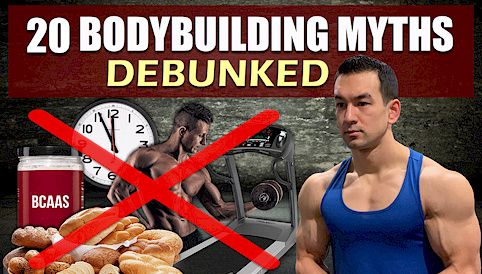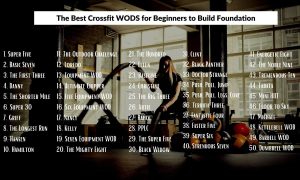
Bodybuilding is a popular form of exercise that aims to build and sculpt one’s muscles through systematic training, proper nutrition, and dedication. However, like any other field, bodybuilding has its fair share of myths and misconceptions that often misguide both beginners and seasoned enthusiasts. In this article, we will debunk some of the most common myths surrounding bodybuilding to help you better understand and pursue your fitness goals.
Myth #1: Bodybuilding Makes Women Bulky
One pervasive myth about bodybuilding is that it can make women bulky, causing them to develop overly muscular physiques. This belief couldn’t be further from the truth. The reality is that building significant muscle mass requires an intense and dedicated training regimen, specialized nutrition, and often the use of performance-enhancing substances. Women naturally possess lower levels of testosterone compared to men, which makes it incredibly challenging for them to gain muscle mass to the same extent as males. Moreover, female bodybuilders who appear heavily muscular often participate in competitive bodybuilding categories that require such extreme aesthetics, which is not representative of the majority of women who engage in bodybuilding for their fitness goals.
Myth #2: Bodybuilding Causes Muscle to Convert into Fat
Another popular myth is that when bodybuilders stop training, their muscle tissue magically transforms into fat. The reality is that muscle and fat are two distinct tissues with different compositions and functions. When someone stops weightlifting or participating in bodybuilding, their muscle mass may decrease due to the lack of exercise stimulus, leading to a loss of muscle size and strength. Simultaneously, if their caloric intake remains the same, the surplus energy that was once utilized for muscle repair and growth may contribute to fat storage. However, muscle tissue does not “turn into” fat tissue.
Myth #3: Bodybuilding Stunts Growth in Adolescents
There is a common misconception that weightlifting and bodybuilding can negatively impact the growth and development of adolescents. This myth may have arisen from concerns about potential injuries or the misapplication of weightlifting techniques at a young age. However, when approached with proper training, supervision, and technique, bodybuilding can be safe and beneficial for adolescents. In fact, weightlifting can help strengthen muscles and bones, improve posture, and promote healthy growth and development when performed with proper care and under appropriate guidance.
Myth #4: Bodybuilders Must Eat a High-Protein Diet Exclusively
While protein is indeed a crucial macronutrient for muscle growth and repair, the misconception that bodybuilders must solely consume a high-protein diet is unfounded. A well-rounded diet rich in diverse nutrients, including carbohydrates, fats, and micronutrients, is essential for maintaining overall health and fueling optimal athletic performance. Bodybuilders should prioritize a balanced diet that includes lean proteins, whole grains, fruits, vegetables, and healthy fats. Adequate calorie intake, balanced macronutrient distribution, and proper timing of meals play a more significant role in muscle growth than simply consuming excessive amounts of protein alone.
Myth #5: Bodybuilding Is Only About Appearance
While bodybuilding often emphasizes aesthetics, the notion that it is solely about physical appearance is far from accurate. Bodybuilding encompasses a wide range of benefits that extend beyond mere looks. Regular resistance training, which is a fundamental aspect of bodybuilding, improves bone density, enhances joint stability, increases metabolic rate, and boosts overall strength and endurance. Bodybuilding can also enhance one’s self-confidence, discipline, and mental well-being. It is a holistic discipline that promotes the development of both the mind and body.
Conclusion
Bodybuilding is an art form that involves dedication, perseverance, and understanding. Debunking common myths associated with bodybuilding is essential to ensure that individuals approach their fitness goals with accurate knowledge and information. By dispelling misleading beliefs about female muscle development, muscle-to-fat conversion, impacts on growth, exclusive protein diets, and the purely appearance-focused nature of bodybuilding, we enable individuals to embrace this discipline confidently and reap the many physical and mental benefits it offers.

